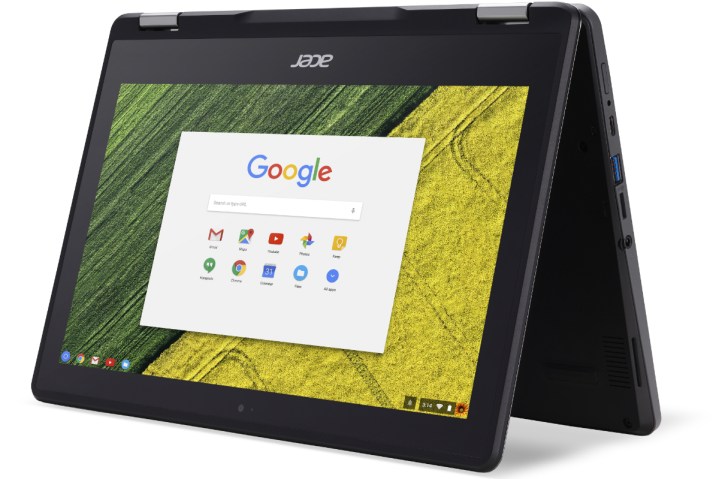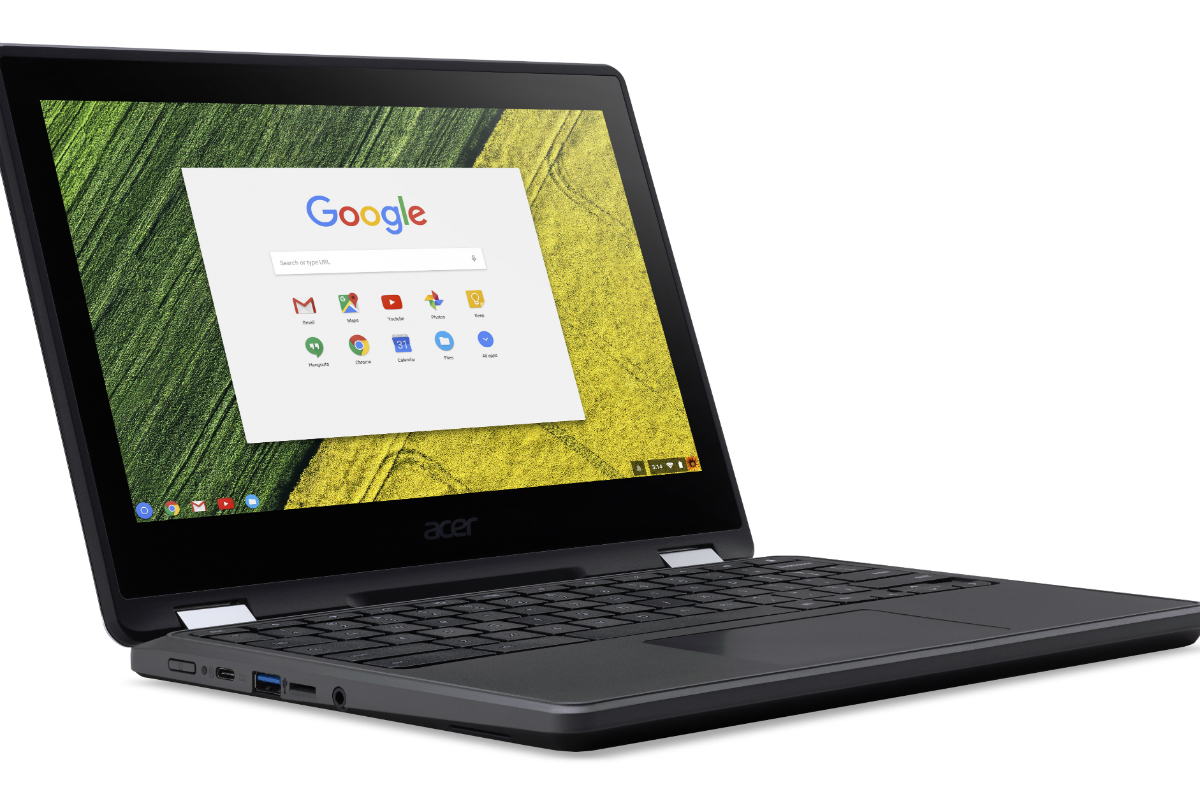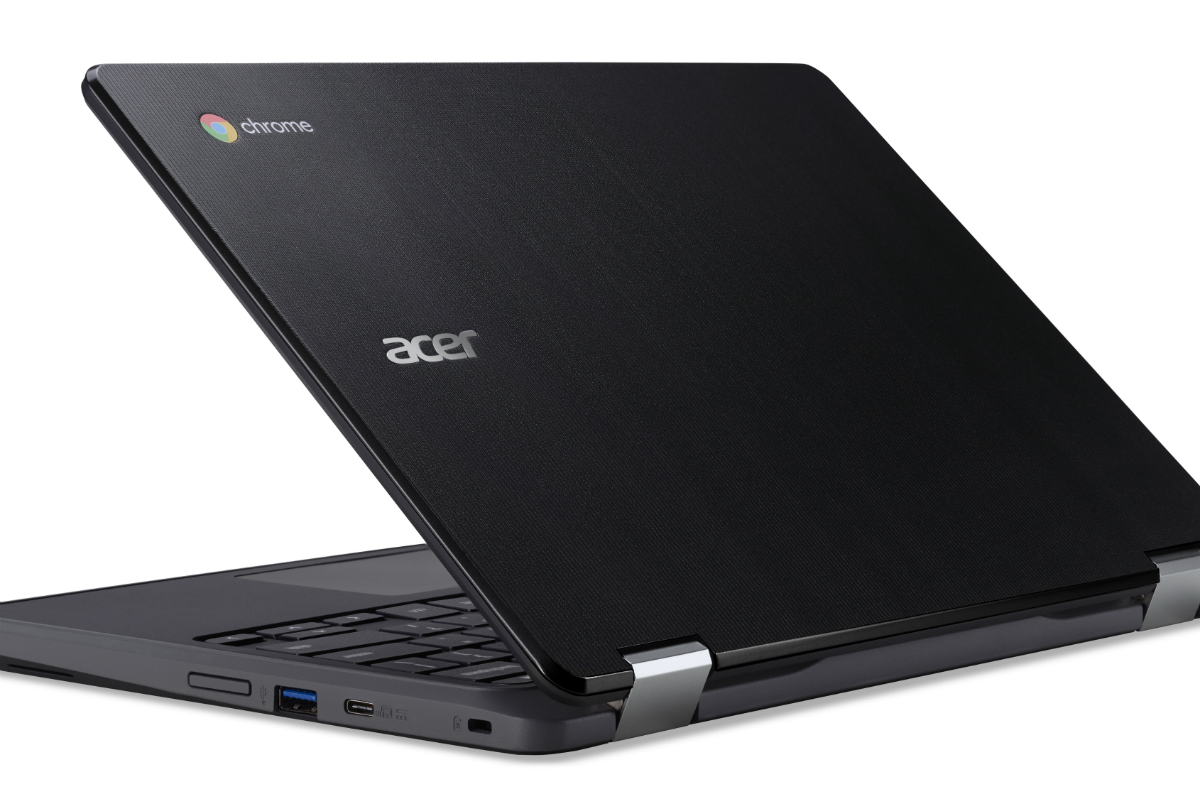
Android app support is particularly important for 2-in-1 devices that can transform into tablets, and so we’re not surprised to see this particular form factor take root in education. Acer has been making Chromebooks for some time now, and the company is taking advantage of the British Education and Training Technology (BETT) Show in London later this month to take the wraps off its own 2-in-1 machine aimed at students and teachers — the Chromebook Spin 11.
As with most machines aimed at the education market, the Chromebook Spin 11 is a rugged model with military-grade durability. It meets the U.S. MIL-STD 810G standard and should be able to withstand the drops (up to 48 inches), knocks, and everyday abuse dished out by the typical student. The keyboard has a drainage system that can channel up to 330ml of liquid around important components and out through the bottom of the chassis, and has keys that are recessed to make them more difficult for mischievous children to pry off.
The Chromebook Spin 11 is powered by an Intel Celeron quad-core N3450 or dual-core N3350, with 4GB or 8GB of LPDDR4 RAM, and up to 64GB of eMMC flash storage. Wireless connectivity is provided by 2×2 MU-MIMO 802.11ac Wi-Fi and Bluetooth 4.2, and wired connectivity includes two USB Type-C ports supporting up to 5Gbps and USB charging, as well as two USB Type-A 3.0 ports. A microSD card slot makes it easier for students and teachers to exchange data.
the 11.6-inch HD IPS display uses with antimicrobial Gorilla Glass. The touchscreen supports an electromagnetic resonance stylus that draws power from the screen and, for that reason, doesn’t need batteries. As with most 2-in-1s, the Chromebook Spin 11 supports four modes — tent mode, display mode, standard notebook mode, and tablet mode. Up to 10 hours of battery life should allow the machines to last through the typical school day.
Acer hasn’t provided pricing or availability information yet on the Chromebook Spin 11. If you’re an educator attending the BETT show, you can drop by Acer’s booth for some hands-on time with the newest member of Acers educational stable of machines.
Editors' Recommendations
- The most common Chromebook problems and how to fix them
- This laptop completely changed my perception of Chromebooks
- Steam enters beta on Chromebooks, tripling number of supported devices
- How ChromeOS Flex turns old PCs into Chromebooks for free
- Chromebooks could soon borrow Window 11’s best multitasking feature




